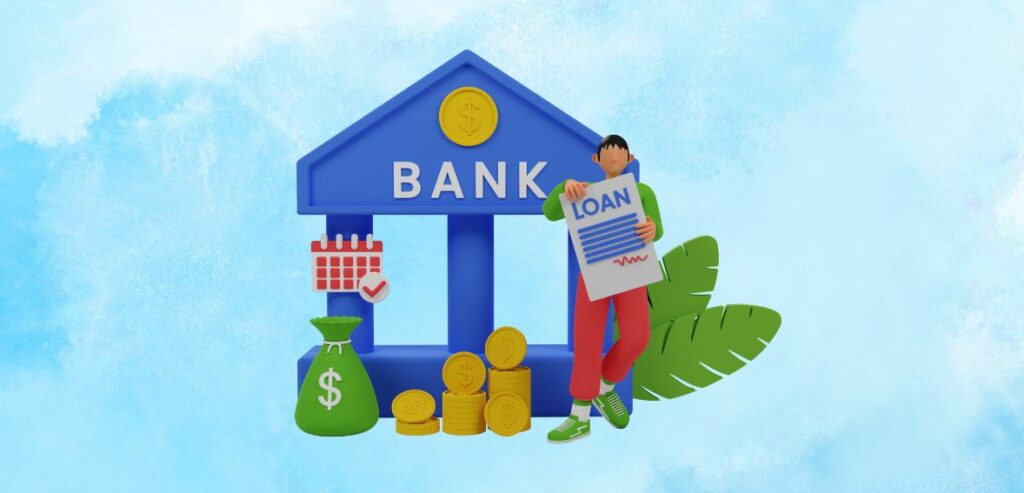Becoming a franchisee is one of the smartest ways to establish a business. A business owner can make a franchise successful with a real entrepreneurial spirit and good capital. The franchisor (the parent company) gives the right to use its brand name, business name, and products. A franchise contract may last for two decades. However, there is a way to renew the agreement.
Franchise start-ups may cost thousands to millions of dollars. Thus, financing is the best option for starting a franchise business.
Franchise financing refers to funding the franchise business. Financing opportunities are available to:
- Buy a franchise
- Finance the required real estate
- Renovate storefront
- Purchase inventory
- Buy other essential assets, including equipment
How to calculate the franchise opening costs
The cost of starting a franchise is not different from the cost of setting up other businesses. However, franchise owners have to pay some special fees to get marketing solutions, operating guidelines, and training from the franchisor.

These costs include-
- Franchise charge– Several companies charge a fee to establish a franchise, and there may be an option of paying the amount in installments. This amount is not refundable and may differ for every company.
- Advertising and royalty fees– Some franchisors have imposed recurring royalty fees and marketing charges. The amount may be a part of the franchisee’s overall sales. In most cases, the disclosure document mentions the details about franchise fees. Moreover, the disclosure provides information related to the franchisee’s obligations, financing options, and financial performance of the franchisor.
Franchise Financing – The most popular franchisee financing options

Franchisor Franchise Loan
A Franchise Loan is a specialized financing designed to assist the franchisees by the franchisors. Many franchisors offer this to expand their business. Usually, there are three parties involved in this type of loan. The franchisor, the franchisee, and the lender, a financial institution providing the loan).
Franchisors offer good financing options and generally provide financial details on their websites. However, a franchisor must provide the federally mandated FDD (Franchise Disclosure Document) at least two weeks before selling the franchise. The document reveals the franchise loan details.
Thus, franchisors can be the best financing source for franchisees. Still, franchisees with strong credit can look for cheaper funding options.
Bank loan

A bank offers funding opportunities to potential franchise owners. Although some financial institutions avoid lending funds to a new business, they can provide franchising services. Moreover, some banks offer franchise loans to those with a high credit score and a solid business model.
The franchise business owner needs to submit several documents to secure bank loans. Furthermore, the bank wants to see the business model and evaluate the credit. Some financial institutions are highly conservative, and getting a loan is difficult without a good record.
Banks are also the franchisees that choose collateral. When he has no business assets, he has to prefer home equity. He may need to pay almost 20% of the upfront costs to get the loan.
Banks offer multiple loan options, such as term loans and lines of credit. Term loans are best for a particular project, whereas lines of credit are perfect for cash flow needs.
Compared to all other types of financing, bank loans offer many advantages. Here are some of them
Lower Interest Rates: Banks often have lower interest rates than other loans. This helps save significant costs over the life of the loan, making bank loans a more affordable financing solution.
Fixed Repayment Terms: Bank loans have fixed repayment terms. These terms are simple, and the borrower always knows how much they must repay every month. They also clearly know the duration of the loan. Because these loans are predictable, it is easy to budget and manage their finances effectively.
Flexible: Unlike franchise loans, bank loans can be used for any business requirement. Franchisee loan terms dictate how you use a franchise loan.
Established Reputation and Trust: Banks are often viewed as reputable and trustworthy financial institutions, which can give borrowers confidence and peace of mind when taking out a loan. Borrowers may feel more comfortable working with a bank with a long-standing industry reputation.
Potential for Larger Loan Amounts: Banks typically have more capital than alternative lenders, allowing them to offer larger loan amounts to qualified borrowers. This can be particularly beneficial for businesses or individuals with substantial financing needs.
Credit Building Opportunities: Timely repayment of a bank loan can help borrowers build or improve their credit history and score. A positive credit history can open doors to future financing opportunities and improve access to favorable terms and conditions on loans and other financial products.
Consumer Protection: Banks are subject to regulatory oversight and consumer protection laws designed to safeguard borrowers’ interests. This can give borrowers recourse in disputes or unfair lending practices, offering security and confidence.
Retirement Funds
With a 401(k) retirement account, a franchisee can borrow money to fund a business or purchase a franchise with a Rollover for business startups. ROBS plans are popular for franchise financing. ROBS is not technically a loan and does not cause the business owner to incur debt. Many notable franchises encourage their franchisees to consider ROBS for funding.
Equipment Financing
Equipment financing is essential for franchise buyers. There are several funding options for investing in equipment. In the case of equipment financing, the equipment will be the collateral, and the business will receive cash for the equipment.
Benefits of Equipment Financing:
- Preservation of Capital: Equipment financing allows businesses to conserve capital for other essential expenses such as payroll, marketing, or expansion initiatives. By spreading the cost of equipment over time, businesses can maintain liquidity and preserve cash flow.
- Improved Cash Flow Management: Equipment financing offers fixed monthly payments, making it easier for businesses to budget and manage cash flow effectively. Predictable payments help businesses avoid unexpected expenses and better plan for future financial obligations.
- Tax Benefits: Equipment financing often offers tax benefits such as depreciation and interest expense deductions. These advantages can help businesses reduce their overall tax liability, resulting in significant cost savings over time.
- Access to State-of-the-Art Equipment: Equipment financing enables businesses to access the latest technology and equipment without needing large upfront investments. This allows businesses to stay competitive and enhance productivity by utilizing cutting-edge equipment.
- Flexible Terms and Structures: Equipment financing offers flexibility in terms of repayment terms, interest rates, and structures tailored to meet the unique needs of businesses. Whether it’s a lease, loan, or equipment line of credit, businesses can choose the option that best aligns with their financial goals and circumstances.
Small Business Credit Card
It is another financing option for a low-cost franchise, and the funds will go directly to the applicant’s corporate bank account. However, this option also has some risks. Although many cards have a low introductory rate, it will expire after a while, forcing the business owners to pay a much higher interest rate.
Business credit cards are usually useful for financing day-to-day costs and other major purchases. They can also be the right choice for short-term financing that ensures smooth cash flow.
SBA Loan
The Small Business Administration guarantees loans at a reasonable rate. However, the SBA works with other financial institutions to provide the funding and guarantees the loan if the borrower defaults for any reason. The SBA also sets rules for lenders to obtain its guarantee.
One major problem with the SBA loan is the complicated application process. The applicant must have strong credit to obtain the loan, and there is no need to choose any collateral to be eligible for it.
The SBA offers different types of loans. For example, the SBA 7(a) loan is highly popular for financing franchises. The loan program can fund up to $5 million; the repayment period is ten years. For equipment financing, the repayment period can be up to 25 years.
How to be eligible for franchisee financing
Different eligibility criteria depend on the type of financing chosen. Proper documentation can make the loan application process much easier. The lender may also ask for some information about the franchise to be purchased.
Sometimes, there are opportunities to purchase a franchise without upfront payment. However, the franchise owner must have solid qualifications and good credit. Without a down payment and solid financing options, purchasing the best franchise may not be easy.

